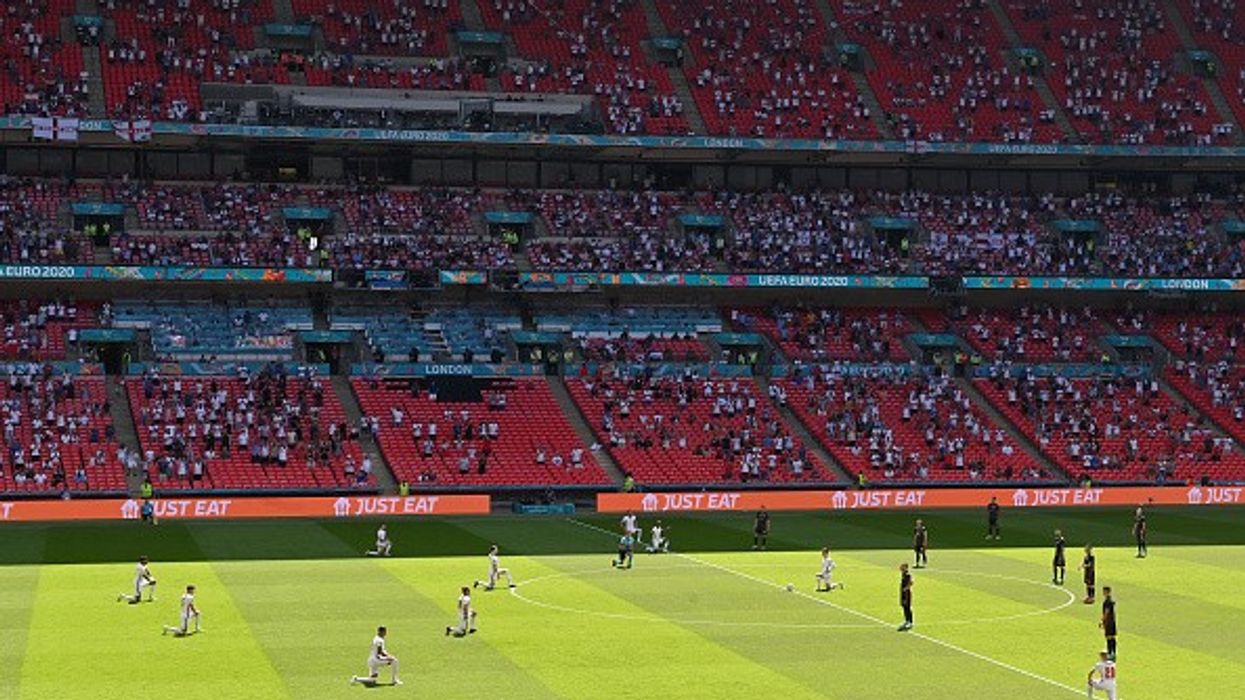FOOTBALL fans have a right to boo and jeer the England team for taking the knee in protest of racism, home secretary Priti Patel said on Monday (14).
Speaking with GB News, Patel said that the anti-racism protest associated with the Black Lives Matter movement has now amounted to “gesture politics”.
“I just don’t support people participating in that type of gesture, gesture politics, to a certain extent, as well,” she said.
Speaking on the matter, she refused to criticise fans who booed the players, saying it was “a choice for them”.
She, however, dodged the question of whether she will boo the team for taking the knee, saying that she has not “gone to a football match to even contemplate that”.
Patel also claimed the Black Lives Matter protests last summer had a “devastating” impact on policing as she criticised the toppling of the statue of 17th-century slave trader Edward Colston in Bristol.
“Not only that, I just don’t subscribe to this view that we should be rewriting our history, pulling down statues, the famous Colston statue, and what’s happened there,” the home secretary said, adding that toppling statues is “not the answer”.

Patel’s statement on England fans booing their own team is not supported by prime minister Boris Johnson with a Downing Street spokesman saying that "he wants to see fans cheering and not booing".
"He wants to see everyone get behind this England team, and of course Scotland and Wales, who are competing in the Euros, that is very much his position," Daily Mail quoted the spokesman as saying.
Patel’s comments put her at odds with England manager Gareth Southgate as well, who has said earlier that players had to “recognise the impact they can have on society” and “give them the confidence to stand up for their teammates and the things that matter to them as people”.
Patel’s statement was slammed by Labour’s shadow culture secretary Jo Stevens who criticised her by saying that “a day after the excellent win against Croatia, senior government ministers are still trying to provoke a fight with the England football team”.
Some of the fans were still seen opposing and booing the England team taking the knee to protest systemic racism during the Euro 2020 opener against Croatia on Sunday (13) but were soon cheered-drowned out by the majority of the fans at the stadium.




